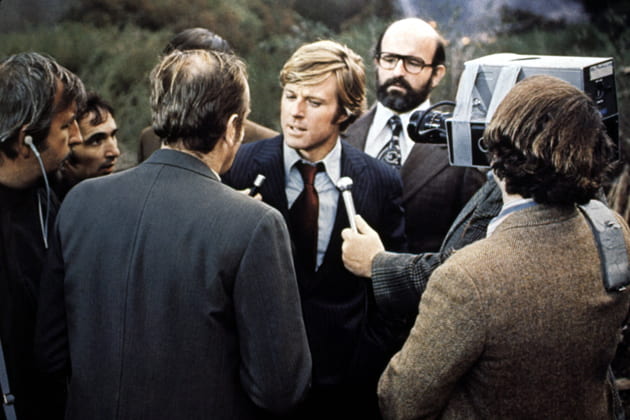
This blog first appeared on the Bloomberg Businessweek website.
Thanksgiving is Hollywood’s Holiday, when the cinema capital of the world releases its very best films as close to the end of the year as possible. And for two very good reasons. The first is obvious: There’s just so much turkey or family you can eat or take, so what else is there to do? The second is more serious, recency: getting the best nominees released as close as possible to the Academy Awards’ votes for the year’s best films. In a recent issue of the Financial Times, Luke Johnson argues that some of our best films have been about American capitalism and lists his top 10. I agree with most of his choices but strongly disagree that “almost all of the entertaining movies about business focus on its dark side,” and the leaders run the gamut from wicked to evil. He worries that this dark portrayal of business will have a negative impact “on consumer support and government policy. Or perhaps,” he writes in his last sentence, “I should just revise my taste in films.”
I’ll get back to Johnson’s “taste” later on, but I totally disagree with his concern about the “dark side” of cinema having a negative impact on consumer support or its distorted view of reality. Over the past 50 years or so, I’ve studied leaders of all types, from military generals to CEOs and politicians. And being based near Hollywood at the University of Southern California’s Marshall School of Business, I’ve taken a special interest in movies and television and what I could learn about leadership from observing directors.
My interest started early in life. One Saturday morning in 1931, about the worst of the Great Depression years, I ventured, along with my older brothers–I had just turned 6–to see a movie about World War I, All Quiet on the Western Front. In the closing scene the hero, played by Lew Ayres, steps out of the trench at first light to observe and gently hold a butterfly and is shot dead. What still haunts me about that film is how soldiers’ lives are endangered by incompetent and uncaring leaders. I didn’t know from “epiphany” but it led to my lifelong interest in leadership. It changed Ayres’s life, too. During World War II, at great risk to his career and reputation, he became a conscientious objector. His films were boycotted and his wife, Ginger Rogers, divorced him. (Later he reclaimed hero status when he served in the Medical Corps.)
Unlike Luke Johnson, I believe that well-chosen films have been a powerful supplement to a superb management education. In fact, if anything, they are too often innocently disregarded. To take an example, close to Johnson’s hometown, The King’s Speech (2010) is a marvelous film about leadership in that it isn’t about a person who sought the role but who inherited it. This uncertain person, a hostage to a dynasty, learned to become a leader and to deliver a great speech–a role that captures a man in the raw process of becoming a leader. One of the formidable lacunae in leadership research is the absence of longitudinal studies–how the person who gets the job (or inherits the throne) learns how to occupy it.
The Candidate (1972) is all about Robert Redford running for office, a bit reluctantly. In the last scene, he’s in his dressing room preparing to go on TV to accept the nomination. He’s being trained by his campaign manager how to respond. He’s putting makeup on and the press is pounding at his door for a statement. His manager pushes him into the throng and as Redford nervously eyes the reporters, he turns to his manager and asks, “Now what do I do?” The only way you or anyone can really achieve leadership is by the experience of actually doing it. In a way, The Candidate is all about becoming a leader. You can’t learn it vicariously, despite what many a business school will tell you.
One of the best teaching experiences Ed Schein and I had when we were teaching at MIT in the 1960s was inventing a course on leadership through film. It was a great period for film, with the French, Italian, Swedish, and Japanese directors (the auteurs) making spectacular films. I can’t recall all the works we used but we included the best of Bergman, Malle, Truffaut, Pasolini, Kurosawa, and Antonioni. We didn’t exclude a number of excellent American movies such as 12 Angry Men and To Kill a Mockingbird. What really made the course come alive was the final assignment: Teams of three students had to write, direct, and record a three-minute film.
My argument with Luke Johnson isn’t so much about his taste but his lack of understanding that movies, great movies, dramatize the fullness of leadership, the dark and the light sides. And if he understood what goes into directing a great movie, he’d learn a few things about exemplary leadership. A great director or leader knows his people, creates a great team, and then makes a great movie that can influence millions more than the readers of his column.
Join the discussion on the Bloomberg Businessweek Business School Forum.